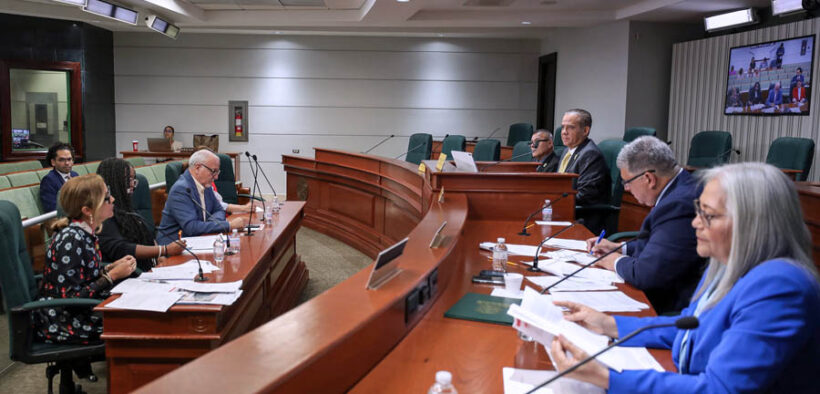Banking bill to mandate full online services raises alarm

A legislative proposal requiring Puerto Rico’s banks to offer all services online has drawn opposition from industry leaders and advocacy groups, who warn it could put older adults at risk and destabilize smaller financial institutions.
During a public hearing before the House Commission on Banking, Insurance and Commerce, chaired by Rep. Jorge “Georgie” Navarro-Suárez, debate centered on House Bill 147. The measure would amend the Puerto Rico Banking Act of 1933 to require financial institutions to provide complete online access to their services.
Advocates for older adults said the bill overlooks the need for in-person service.
“It is well known that the older adult population carries out many of their daily transactions in person, as it is part of their psychosocial performance and the maintenance of their health and mobility. There is a human element in personal attention that can never be replaced by virtual service,” said José Acarón, state director of AARP Puerto Rico.
Acarón noted that people older than 60 represent 30% of Puerto Rico’s population, leaving them vulnerable to fraud and identity theft if forced to rely only on digital banking.
He cited AARP’s “Bank Safe” study, which found that older adults value personal interaction even though nearly 63% use online or mobile banking at least once a week. He suggested targeted options such as home banking services for those older than 70 or customers with disabilities.
Rep. Ángel Morey-Noble, who sponsored the bill, defended it as a way to help people with mobility challenges.
“The legislative intent is to help older adults have better access. This comes from constituents over 80 years old who have had difficulties making transactions in branches and face conditions that limit their mobility,” he said.
Still, regulators and industry representatives flagged risks. Mónica Rodríguez-Villa, deputy commissioner at the Puerto Rico Office of the Commissioner of Financial Institutions, said the bill could amount to “undue interference in the free market,” noting that not all banks have the resources to fully digitize services.
“This has an uneven economic impact and puts the stability of the system at risk,” she said.
Zoimé Álvarez-Rubio, president of the Puerto Rico Bankers Association, echoed those concerns, calling the measure “impossible and extremely costly,” particularly for larger banks, and warning it could weaken institutional soundness. She noted that nine commercial banks currently operate on the island.
The Ombudsman’s Office recommended removing the mandatory requirement but said gradual implementation could be considered. Other lawmakers present included Lisie Burgos-Muñiz, Emilio Carlo-Acosta and Jerry Nieves-Rosario.




